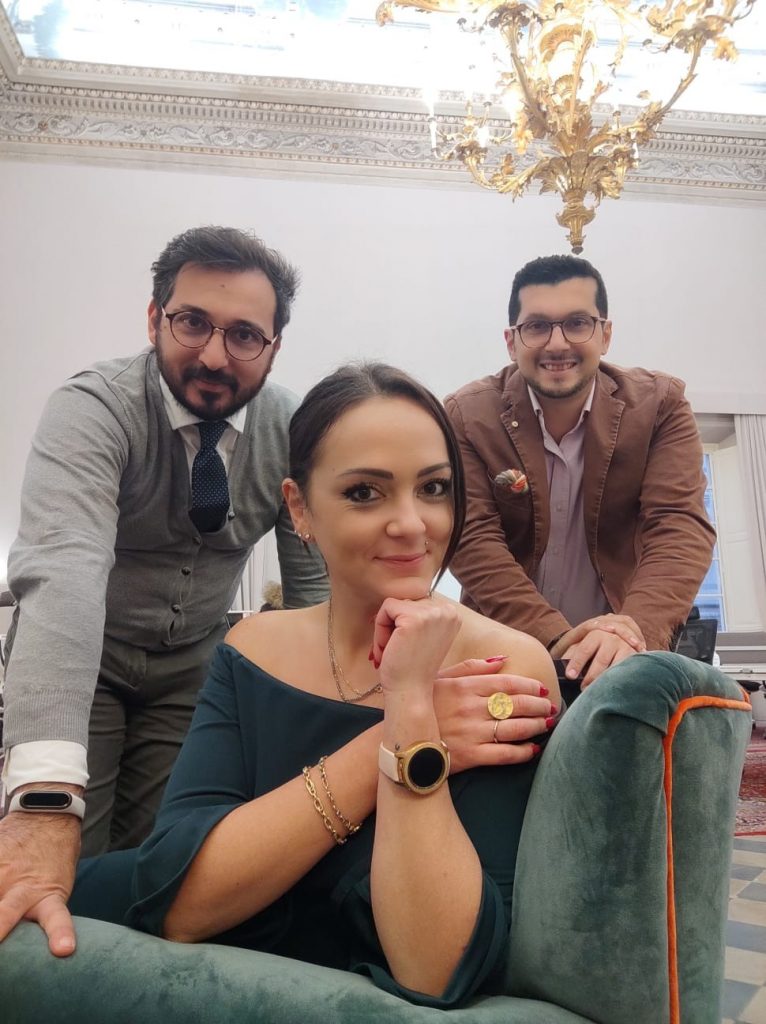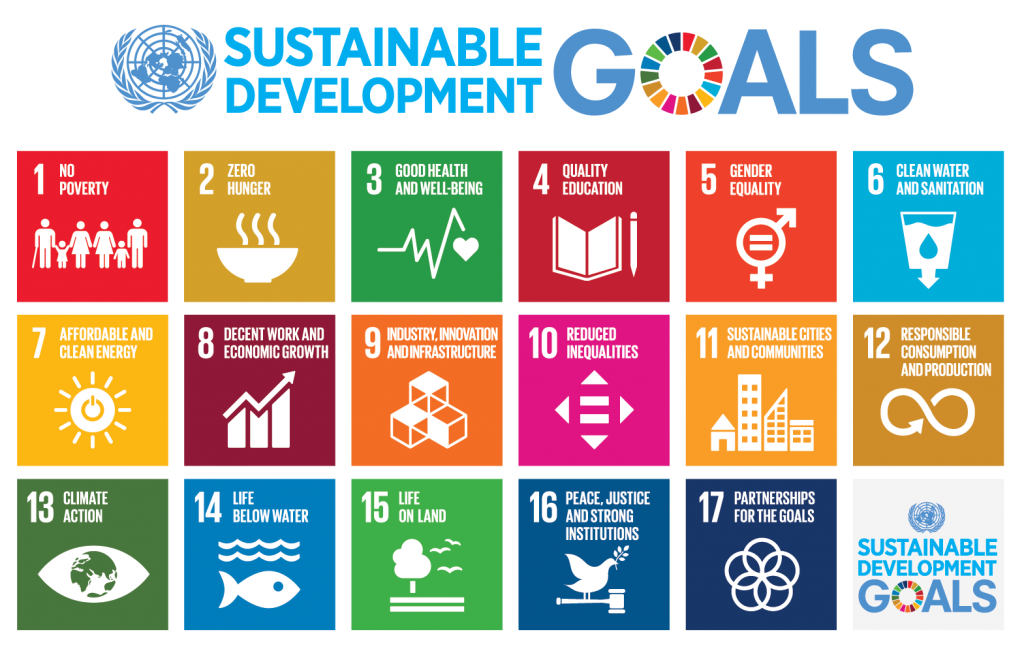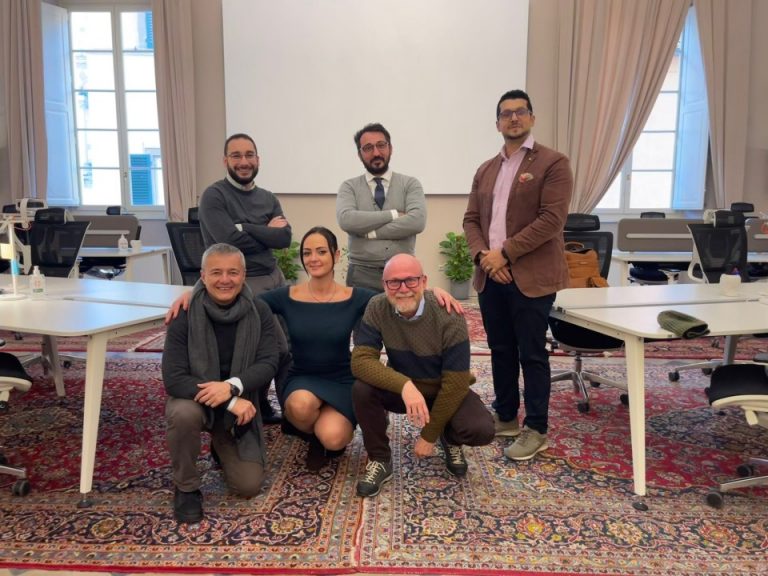Alla mia destra Federico d’Annunzio – CEO e Co Founder Traent, nonchè bisnipote del vate Gabriele – alla mia sinistra Cipriano Moneta, Stategy Consultant Traent, alle mie spalle – in ordine – Fabio Severino CTO Traent, Riccardo Falzone e Dario Gattuso, rispettivamente CCO, CEO e Founder Tech Dgit Easy.
Un vero onore per me, ieri, sedere al tavolo con i rappresentanti di una realtà aziendale rara, come poche al mondo: visionaria, ispirazionale, trainante e decisamente rivoluzionaria.
Nel bellissimo palazzo storico Il Casino dei Nobili, a Pisa – dove i Lorena un tempo allestivano feste favolose, oggi sede degli uffici Traent – ho avuto il piacere di conoscere persone brillanti e dalla genialità acuta, con le quali ho finalmente creduto che il mondo migliore che ho sempre sognato potrà un giorno (neanchre non troppo lontano) diventare realtà.
Sapete, al mio team ripeto sempre che dobbiamo essere nella vita come nel lavoro il cambiamento ideologico, strategico, organizzativo e tecnologico che vogliamo vedere nel mondo perchè è solo credendoci, ispirando gli altri all’azione, supportando e accelerando concretamente la trasformazione digitale che le cose possono accadere.
Ecco, ieri ho avuto un faccia a faccia con quel “cambiamento” è il mio tapis roulant edonico – come si dice in psicologia – ha ricevuto una vera scossa: ho sentito profondamente di aver guadagnato qualcosa di importante in termini di confronto, conoscenza, visione. E tutto ciò mi ha resa ancora più determinata nel volermi sentire parte attiva di un futuro 5.0. L’entusiasmo è contagioso si sa, una forte leva motivazionale per me!

Al Casino dei Nobili, sotto il terzo lampadario chandelier più grande d’Europa, abbiamo discusso di etica, blockchain, AI, compliance, scenari futuri e soprattutto di applicazioni di tecnologie all’avanguardia in un ambito a noi molto caro, la sanità.
Temi complessi e profondi che sottolineano però l’impegno sociale di chi vuole cambiare le cose. Le due aziende condividono infatti una mission tanto semplice quanto ambiziosa:
Traent si definisce come la Next-Generation Platform che faciliterà e renderà uniche le interazioni tra aziende, persone, organizzazioni attraverso la creazione di un sistema globale di trasparenza che consentirà comportamenti etici, collaborativi e sostenibili.
“Intuition is dangerous. Bias is dangerous. Reality can only be explained with proven, open, accessible data. We must shift to a new, transparent ecosystem that is creative, agile, and performance driven.”
– Federico D’Annunzio
TDE sviluppa next tech per l’umanità e opera attivamente nell’ecosistema phygital per agevolare il passaggio verso una società saggia, orientata al benessere delle persone, più equa, più sostenibile e supportata da tecnologie intelligenti.
Siamo entrambi fermamente convinti che il cambiamento si possa realizzare con le tecnologie che devono essere utilizzate per il bene dell’umanità! L’intergazione di elementi di human centricity e il potenziamento tecnologico reso possibile dall’era 4.0 è lo step propedeutico. Questo è ciò su cui cerchiamo di intervenire quotidianamente come aziende.
Ricordate nel 2000?
Wired aveva pubblicato un articolo intitolato Perchè il futuro non ha bisogno di noi, a firma di Bill Joy. L’articolo ipotizzava uno scenario dispotico noto come “l’era della singolarità” in cui macchine dall’intelligenza superiore avrebbero sostituito gli esseri umani. Due decenni dopo, lo scenario previsto non è ancora diventato realtà, ma la singolarità è rimasta ogetto di dibattito.
Uno dei più famosi è stato quello tra Elon Musk di Tesla e Jack Ma di Alibaba che hanno discusso sul tema “uomo versus macchina” durante la Conferenza mondiale sull’intelligenza artificiale del 2019 a Shanghai (Qui il video per i più curiosi). Elon Musk ribadiva la preoccupazione di Bill Joy che l’AI potesse un giorno porre fine alla civiltà umana, mentre Jack Ma sosteneva che gli umani saranno sempre molto superiori delle macchine grazie alla loro capacità di provare emozioni.
Oggi lo scenario è questo: gli stessi fautori della singolarità affermano che ci vorrà ancora qualche decennio prima che le macchine raggiungano l’intelligenza umana e la sostituiscano del tutto (stimano un’affermazione della singolarità tra il 2045 e il 2050), intanto la Neuralink di Elon Musk ha già speriementato i chip nelle scimmie e ha dichiarato che entro il 2021 potrebbero partire i primi test che prevedono l’impianto dei chip nel cervello umano, piccolo wearable che funziona “come un fitbit nel cranio”. Forse siamo dinanzi a un’interfaccia cervello-macchina che promette di digitalizzare la nostra attività cerebrale. Lascio a voi l’approfondimento e le riflessioni che ne seguiranno.
Ma al di là della naturale polarizzazione dell’opinione pubblica sul tema digitalizzazione e nonostante le paure e le ansie (anche lecite) provocate dalla tecnologia, non possiamo negare che i benefici per l’umanità sono evidenti: le tecnologie accelerano il progresso e creano opportunità per tutti.
E’ questo mi porta ad affermare che il ruolo delle tecnologie per il miglioramento della società è cruciale e che le aziende dovrebbero investire di più in digital transformation e mettere al centro della propria strategia un serio attivismo per allinearsi anche agli Obiettivi dello Sviluppo Sostenibile dell’Agenda 2030.

17 SDGs – Sustainable Development Goals delle Nazioni Unite non solo offrono una visione condivisa e un modello standard per guidare gli stackeholder chiave ad affrontare le sfide sociali e ambientali più urgenti, ma sono una vera e propria call to action globale a cui tutti, i governi, le istituzioni, le ONG, le imprese e la società civile, sono chiamati a rispondere portando il mondo su un sentiero di sostenibilità (anche per questo l’Agenda 2030 richiede di disegnare processi decisionali e attuativi aperti e partecipati).
Questo è ciò che ispira anche l’iniziativa giapponese “Society 5.0″, quella da cui abbiamo imparato a tendere verso un approccio da Social Innovation Company. Tutte le aziende, in realtà dovrebbero farlo; dovrebbero tenere sott’occhio questo concetto di fisiologica evoluzione di una società super smart del futuro che a quanto pare avvierà una nuova fase della storia umana: il passaggio radicale da un sistema basato sulla tecnologia e basta ad un sistema umano-centrico agevolato, facilitato e reso migliore dalle tecnologie abilitanti.
La tecnologia al servizio dell’uomo e non viceversa! Questo è il concetto chiave.
Ma per diventare una società pienamente digitale, dobbiamo applicare le tecnologie a tutti gli ambiti della nostra vita, andando oltre le semplici comunicazioni online e i social media. L’ecosistema mondiale in cui siamo inseriti è certamente difficile, mette in luce pericoli e promesse della digitalizzazione, ma soprattutto richiede impegno, attivismo e fiducia.
Oggi «mentre i governi, le imprese e le società sono alle prese con il Covid-19, la coesione sociale è più importante che mai”. Lo fa notare Il 16esimo Global Risks Report del World Economic Forum (Wef), l’organo che annualmente redige la classifica dei maggiori rischi del mondo. Per ovvie ragioni, nel 2021 il rischio delle malattie infettive è balzato al primo posto dei rischi planetari (dal 10° nel 2020) anche perchè i costi umani ed economici del Covid-19 minacciano seriamente di rallentare anni di progressi nella riduzione della povertà e della disuguaglianza globali e di danneggiare ulteriormente la coesione sociale e la cooperazione globale. Oltre ad elencare i rischi, il rapporto Wef riflette sulle risposte Covid-19 e ci porta a trarre lezioni che potrebbero rafforzare la resilienza globale: «la formulazione di quadri analitici, la creazione di nuove forme di partnership e la creazione di fiducia attraverso una comunicazione chiara e coerente», raccomandazioni per aiutare i Paesi e le imprese ad agire, piuttosto che reagire, di fronte ai rischi.
Ecco, è la trasformazione degli ideali in azione efficace e sostenibile che puo’ fare la differenza. Noi, con l’augurio di instaurare sinergie indissolubili con una realtà unica come Traent, ci proviamo!
01/12/21
Oriana Torregrossa | Digital & Communication Manager TDE
